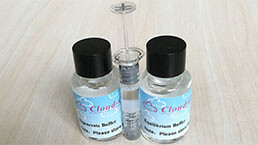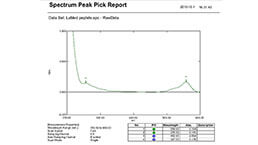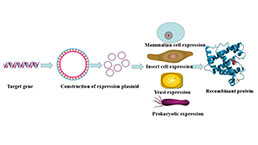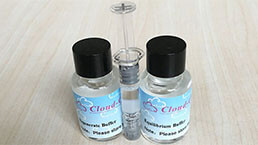Recombinant Prostatic Acid Phosphatase (PAP)
PSAP; ACPP; ACP3; PAPf39; 5'-NT; Prostatic Specific Acid Phosphatase; Ecto-5'-Nucleotidase
- Product No.RPA168Ra01
- Organism SpeciesRattus norvegicus (Rat) Same name, Different species.
- SourceProkaryotic expression
- HostE.coli
- Endotoxin Level<1.0EU per 1µg (determined by the LAL method)
- Subcellular Locationn/a
- Predicted Molecular Massn/a
- Accurate Molecular Massn/a(Analysis of differences refer to the manual)
- Residues & Tags
- Buffer FormulationPBS, pH7.4, containing 0.01% SKL, 1mM DTT, 5% Trehalose and Proclin300.
- Traits Freeze-dried powder
- Purity> 97%
- Isoelectric Pointn/a
-
Applications
Positive Control; Immunogen; SDS-PAGE; WB.
If bio-activity of the protein is needed, please check active protein. - Downloadn/a
- UOM 10µg50µg 200µg 1mg 5mg
- FOB
US$ 181
US$ 452
US$ 904
US$ 2712
US$ 6780
For more details, please contact local distributors!
SEQUENCE
USAGE
Reconstitute in PBS or others.
STORAGE
Avoid repeated freeze/thaw cycles. Store at 2-8°C for one month. Aliquot and store at -80°C for 12 months.
STABILITY
The thermal stability is described by the loss rate. The loss rate was determined by accelerated thermal degradation test, that is, incubate the protein at 37°C for 48h, and no obvious degradation and precipitation were observed. The loss rate is less than 5% within the expiration date under appropriate storage condition.
GIVEAWAYS
INCREMENT SERVICES
-
 Endotoxin Removal Kit
Endotoxin Removal Kit
-
 BCA Protein Quantification Kit
BCA Protein Quantification Kit
-
 Protein Labeling Customized Service
Protein Labeling Customized Service
-
 Molecular Mass Marker for Protein
Molecular Mass Marker for Protein
-
 Recombinant Protein Customized Service
Recombinant Protein Customized Service
-
 Monoclonal Antibody Customized Service
Monoclonal Antibody Customized Service
-
 Polyclonal Antibody Customized Service
Polyclonal Antibody Customized Service
-
 Protein Activity Test Experiment Service
Protein Activity Test Experiment Service
-
 Immunoprecipitation (IP) Experiment Service
Immunoprecipitation (IP) Experiment Service
-
 Buffer
Buffer
-
 Endotoxin Removal Kit II
Endotoxin Removal Kit II
-
 Real Time PCR Experimental Service
Real Time PCR Experimental Service
-
 Spike RBD Protein (S-RBD)
Spike RBD Protein (S-RBD)
-
 Protein G
Protein G
-
 Protein A
Protein A
| Catalog No. | Related products for research use of Rattus norvegicus (Rat) Organism species | Applications (RESEARCH USE ONLY!) |
| RPA168Ra01 | Recombinant Prostatic Acid Phosphatase (PAP) | Positive Control; Immunogen; SDS-PAGE; WB. |





